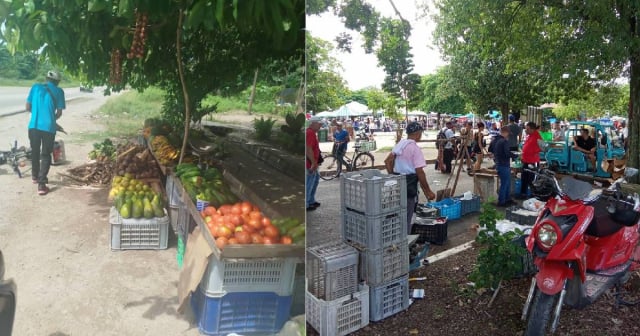The Cuban government imposed fines exceeding 348,000,000 pesos on micro, small, and medium-sized private businesses (mipymes) in the last two months for failing to comply with the prices set by the regime for the marketing of basic products, as revealed in the most recent meeting of the Council of Ministers.
From the second half of July until September 19, 137,391 fines were imposed on private sector businesses in Cuba, after 127,532 violations were detected in inspections carried out by government officials, reported the First Deputy Minister of Economy and Planning, Mildrey Granadillo de la Torre.
These operations fall within a government campaign against the non-state sector, which the regime has termed "a plan to correct distortions and relaunch the economy."
The onslaught has intensified even more since the entry into force of Resolution 225/2024 from the Ministry of Finance and Prices on July 8, which capped the sale prices of six essential products (cut chicken, vegetable oil, sausages, powdered milk, pasta, and powdered detergent) with the announced intention of "regulating" the high prices in retail trade.
In this regard, Granadillo emphasized in the last ministerial session that “the objective is not to impose contraventions [fines], but to ensure the regulation of prices” and stated that they have maintained “the monitoring of maximum prices for the marketing of the six products (…) through non-state management methods.”
The "monitoring" led the government to carry out 222,300 inspections across the country in the past two months and to collect a significant amount in fines, even though the deputy minister claims that this is not the "objective."
The government plan supposedly seeks to combat high prices—which have a brutal impact on the economies of Cuban families—and illegal activities, but it only targets private entrepreneurs, while state stores in freely convertible currency (MLC) sell essential items, such as meats, dairy products, hygiene products, etc., at prohibitive prices.
The oversight of private businesses is constant and strict. Last weekend, inspectors from Santa Clara carried out seizures, forced sales, and imposed fines ranging from 5,000 to 16,000 Cuban pesos (CUP), based on Decrees 30/21 and 91/24, and Resolution 225/2024.
Closing the noose, last August, the Council of Ministers announced the enactment of Decree 107/2024, which expanded to 125 the activities that are prohibited for micro, small and medium-sized private enterprises, non-agricultural cooperatives, and self-employed workers.
Among the activities that were banned for the private sector are the manufacturing of pharmaceutical products, financial intermediation, the editing and layout of books, television programming and broadcasting, telecommunications activities, as well as various forms of transport and storage.
Decree 107/2024 reflects the regime's strategy to maintain centralized control over key sectors of the economy, but it could have adverse effects in terms of economic growth, job creation, and social welfare, according to experts.
In a preliminary analysis on social media, the renowned economist Pedro Monreal warned that "almost half of the prohibitions (9 out of 19) are concentrated in two key productive sectors - agriculture and industry - which have severe limitations in terms of supply capacity and directly impact the material shortages of citizens."
In his opinion, the regulation "confirms the sidelining of private activity and the market as part of state measures to supposedly 'correct distortions and reboost the economy'."
"The decree 107/2024 consists of 'raining on wet ground,' expanding the prohibitions and restrictions that were already contained in the previous regulation (Decree 49/2021), many of which stem from a narrow political reasoning and questionable economic rationality," the specialist considered.
What do you think?
COMMENTFiled under:
